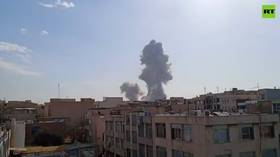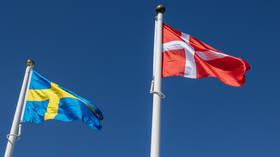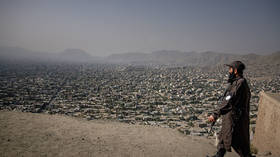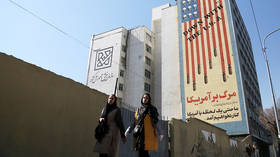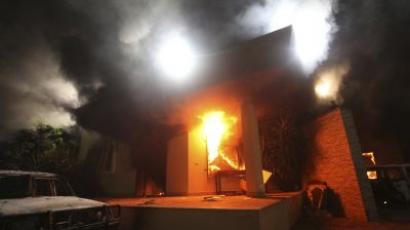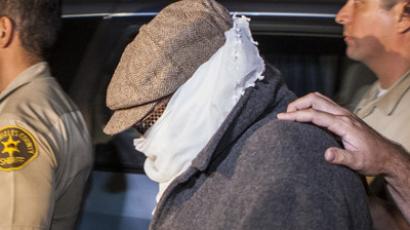'US-backed Libyan militias are turning on each other'
Washington continues to support militant Islamist groups as long as it’s politically expedient to do so, says global affairs researcher Benjamin Schett.
US military adventurism, and the war crimes committed by the country's forces, impoverish the entire region and ultimately lead to a rise in the number of Islamic militant groups, he told RT. Such groups, he says, can end up posing a threat to US citizens.Schett spoke to RT about the killing of American Ambassador Christopher Stevens and three other embassy staff in Libya.RT: Ambassador Stevens was responsible for building Washington's relations with the Libyan post-revolution interim leadership. Does that indicate that the people behind the attack are of a very different mindset to Libya's current rulers?Benjamin Schett: Not necessarily. The United States supported militant extremist Islamic groups in order to topple the government of Muammar Gaddafi last year. And one example is the Libyan Islamic Fighting Group. It is, according to the Washington Post, a terrorist organization with links to al-Qaeda. Nevertheless, in 1996, they received support from British Secret Service MI6 to kill Gaddafi, which did not work out, as we know. After 9/11, in 2001, they still got support from Western powers during the so-called uprising in Libya last year and the NATO bombing campaign. They got support from the US and Saudi allies, so obviously the US never stopped supporting militant Islamist groups as long as it’s in their geopolitical interests.RT: What does this attack say about the authorities' grip on security in post-Gaddafi Libya?BS: It shows that Libya is part of a broader organization of the Middle East and South and Central Asia, which is a direct result of US policies. We saw what happened in Afghanistan and Iraq after the US invasion – the clashes between Sunnis and Shias. We see what’s happening now in Syria, where the sectarian violence is being supported from the outside – from the Gulf states, from the US, and from France. And it’s what’s happening in Libya – all these different militias that received support in order to fight against Gaddafi are now turning against each other and are pushing for a tribalization of Libya. RT: It's believed the attacks were a response to this US film deemed offensive to Islam. But could it also be a side effect of US foreign policy in the region?BS: Definitely. The whole story of the clash of civilizations and Christianity versus Islam – all these stories, they don’t show the real picture. The real picture is that the majority of Muslims are as peaceful as the majority of Christians or Jews or whoever. The policy of supporting militant extremist Islamist groups as long as it serves geopolitical interests and fighting secular independent governments in the Middle East, or direct military intervention and war crimes, impoverishing of the whole region – certainly this leads to an increase of Islamic militant movements, which can turn out to be a threat to US citizens, as we’ve just seen.RT: It's the first death of a high-profile US diplomat on duty abroad since 1979. Could this killing affect future policymaking in the State Department?BS: The US official propaganda has a very cynical term regarding civilian deaths during a bombing campaign, called “collateral damage.” Of course, they wouldn’t use this term when it comes to the death of a US citizen. But I think in the mindset of the US establishment, in a certain way this also was collateral damage because it won’t make them stop their policies in the Middle East, even if it threatens the lives of American citizens.


